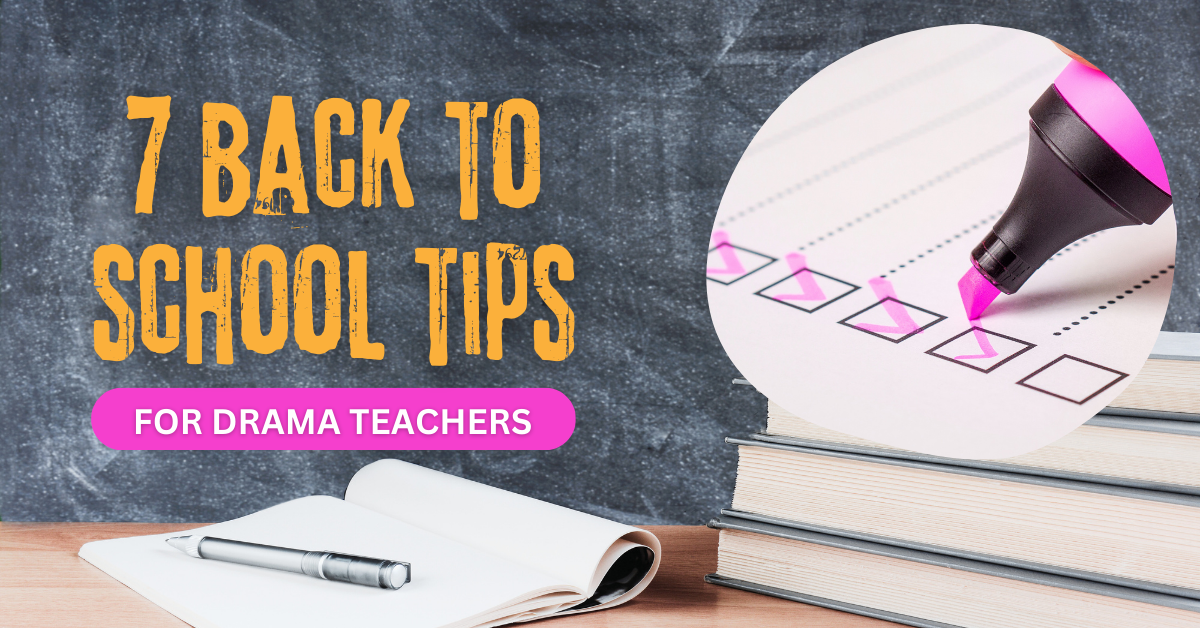Agatha Rex by Lindsay Price is a bold high school take on Antigone - packed with heart, conflict, and a powerhouse ensemble. One girl. One stand. One huge risk. *NEW COMPETITION VERSION AVAILABLE!*
Get Your First Day of Drama Class Started Out Right
First impressions matter! Getting your first day of drama class started on the right foot is so important for setting the tone for the rest of the semester. No matter whether you have a classroom full of students who are brand-new to drama, a gang of seasoned drama pros, or a group of students who really don’t want to be there (and that’ll happen), you have a fabulous opportunity to help your students grow and develop in ways they can’t even imagine yet. So read on for three tips, as well as some helpful links, to help you get your first day of drama class started out right.
1 . Learn your students’ names, and share your classroom expectations.
Demonstrating respect for your students will help them to respect you. And an easy way to show your students that you care and that you value them is to learn their names right away. Here are some tips to help you learn your students’ names quickly.
And, while it’s not exactly fun to have to lay down the law right away, it is important for your students to know what the expectations in the drama classroom are. While there is lots of movement and creativity, it’s still a class – it’s not just time to run amok. You may choose to do this by having a class discussion, sharing details on your class syllabus, putting up posters around your classroom, or making it into a game. But, no matter what, be sure to make your expectations clear and share them in a timely manner.
Here are some extra tips to try for sharing classroom expectations:
2. Find out more about your students and their personalities.
Have the students get into pairs. Each pair conducts a mini-interview with each other. They need to find out four things:
1. Their partner’s name.
2. One thing their partner did in the summer.
3. One hobby or activity their partner does outside of school.
4. One “favourite” thing their partner likes: favourite colour, food, band, movie, etc. (Let students pick whichever “favourite” they want to share.)
Give students three minutes to interview each other. Then then they will stand up with their partner and share each other’s answers with the class. This gives all the students a chance to get to know who is in the class and gain a glimpse into their personality. This can also help you, the teacher, get an indication of your students’ interests so you can tailor your classroom exercises and scene choices to topics and subject matter that your students would like.
You can also try these three “getting to know you games” with your class:
3. Why are your students there?
Have your students fill out a brief, private questionnaire (click below to download) describing why they’re taking drama and what they hope to get out of the class. Allow students to be honest by assuring them you will keep their answers confidential – remember, you may have students in your class who didn’t choose to take drama, but they are just as important to the group as your keeners. You may even wish to allow students to give their answers anonymously – have them fold their sheets in half and place the completed forms in a box. (If you go this route, you can stand with the box and check off that they’ve submitted the paper, should you wish to include this in the students’ participation marks.) Like the classroom mini-interviews, this allows you to dig even deeper into your students’ personalities, hopes, and goals for the semester. This information will help you shape your curriculum to focus on the units and lessons that will most benefit and challenge your students.
Good luck, and may you and your students have much success!
WANT MORE? Here are some BONUS articles for stating your year off right:



